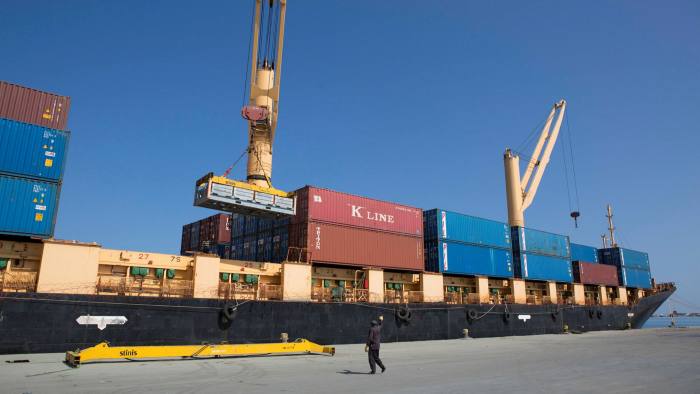Somaliland gears up for ‘healthy’ battle of ports
Berbera, Somaliland Anchored at the deepwater port of Berbera, an Ethiopian-flagged ship offloads its cargo of sugar and rice coming from India in what officials hope is a sign of a fresh era of trade in the self-declared east African state of Somaliland.
Thanks to a $442m investment from the Dubai-based ports operator DP World, Berbera is shaping up to regain its centuries-old trade lustre, setting up a battle of ports over a maritime thoroughfare traversed by about a third of ships worldwide. The revamped port of Berbera now offers an alternative to Djibouti as a gateway to lucrative trade routes through the Suez Canal.
Berbera was once the capital of the British Somaliland protectorate. For centuries, until a civil war destroyed much of its facilities three decades ago, it was a hub of maritime trade between the Horn of Africa, the Arabian peninsula, and India thanks to its key location on the Gulf of Aden opposite Yemen.
Now, “we are getting another chance to become an international business centre,” said Berbera’s mayor, Abdishakur Mohamed Hassan. Outside his office, rows of camels and herds of goats are heading to the dock, destined for the port of Jeddah in Saudi Arabia. “There will be a healthy competition between the neighbouring ports,” he added.
Berbera’s terminal, which opened in June, can handle the world’s largest ships. Its container capacity increased from 150,000 20ft containers (TEU) to 500,000 TEU annually, and work is already under way for an expansion to handle up to 2m TEU a year. The main aim of the port is to serve Ethiopia, Africa’s second most populous country, which needs “multiple gateways”, according to Supachai Wattanaveerachai, chief executive of DP World’s port of Berbera.
Eritrea broke away from Ethiopia in 1993, leaving the latter landlocked and reliant on neighbouring Djibouti for port access. Djibouti had remained “almost entirely free of competition” in the region, according to the World Bank which in a report said almost 95 per cent of Ethiopian cargo passed through it. The remainder goes through Port Sudan, in Sudan, and Mombasa, in Kenya.
Read more……
Source: The Financial Times

